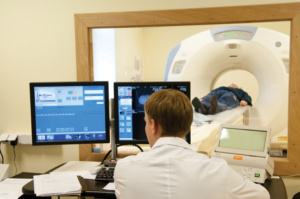 Cancer Screenings Are An Important
Cancer Screenings Are An Important
Tool In Cancer Prevention & Control
Photos & Article courtesy of | Texas C-STEP, Texas A&M School of Public Health


Cancer screenings are an important tool in cancer prevention and control. The overall goal of cancer screenings is to find the cancer early when it’s easier to treat. Some screenings can detect cancer early, while others detect pre-cancers, which can prompt action to prevent cancer from developing. Cancer awareness is an important key to early detection and better health-seeking behavior. A lack of awareness of appropriate screening may lead to poor adherence of these screenings and therefore delay diagnosis, which could be fatal. With early preventative screenings and a healthy lifestyle, cancer diagnoses are often treatable.
Do you know what screenings are available for Breast Cancer?
Mammograms: An x-ray of the breast. Mammograms can help detect breast cancer early when it is easier to treat and before it is big enough to feel or cause symptoms. It is recommended that women receive annual mammograms starting at the age of 45 (40 if desired) and every 2 years beginning at the age of 55.
Clinical Breast Exam: An exam performed by a doctor or nurse, who uses his or her hands to feel for lumps or other changes.
Breast Self-Awareness: Being familiar with how your breasts look and feel can help you notice symptoms such as lumps, pain, or changes in size that may be of concern —follow up with your doctor if you notice something abnormal.
If there is an abnormal result, you may need a diagnostic test such as a breast ultrasound, diagnostic mammogram, or biopsy. You will need to follow-up with your doctor to find out what diagnostic test is best for you.
Myth: You won’t develop breast cancer unless it runs in your family.
Fact: While women who have a close blood relative with breast cancer have a higher risk, it’s important to note that most women who get breast cancer have no family history of the disease.
Do you know what screenings are available for Cervical Cancer?
PAP Tests: Screenings are recommended every 3 years from age 21- 29 and every 5 years from age 30-65 in combination with an HPV test. If older than 65, follow-up with your doctor to determine if you don’t need to be screened anymore.
If there is an abnormal result, you may need a diagnostic test such as a colposcopy or Loop Electrosurgical Excision Procedure (LEEP). You will need to follow-up with your doctor to find out what diagnostic test is best for you.
Myth: You do not need to get screened if you do not have any symptoms.
Fact: Cervical cancer in its early stages does not have any symptoms. In fact, it can be detected at a precancerous stage, when treatment is very simple and highly effective, which is why it is important to get screened.
Do you know what screenings are available for Liver Cancer?
Hepatitis C Testing (HepC): A blood draw done at least once in your lifetime past the age of 18 to detect for the Hepatitis C virus infection—HepC is a high-risk factor for liver cancer.
Myth: Liver problems are painful.
Fact: Liver disease and liver cancer tend
to be silent until it is advanced; the inside of
the liver doesn’t have pain nerves. By the time there are symptoms, the cancer may be large and advanced. Hepatitis B and C, as well as cirrhosis, may be diagnosed 20 to 30 years after you are infected.
Do you know what screenings are available for Colorectal Cancer?
Fecal Immunochemical Test (FIT Test): An annual at-home stool test starting at age 45, that detects blood in the stool that cannot be seen.
Colonoscopy: A common procedure in which your doctor uses a long tube with a light and camera to find polyps or cancer inside the rectum and the entire colon. During the test, a doctor can find and remove most polyps and some cancers. If the procedure is normal then it is recommended to repeat this procedure every 10 years, otherwise repeat will depend on the number, size, and type of polyps found.
Myth: Colorectal Cancer is always fatal.
Fact: Colorectal Cancer can be curable when detected early. Unfortunately, due to low screening adherence, many people are diagnosed at a more advanced stage, which decreases the chances of being successfully cured. Incidence rates increased by about 2% per year in people younger than 50 during the past decade, according to the American Cancer Society.
Do you know what screenings are available for Lung Cancer?
Low-Dose CT (LDCT): This is the only recommended screening for lung cancer. It is not painful and only takes a few minutes as you lie on a table and a CT machine uses a low amount of radiation to make detailed images of your lungs. Yearly lung cancer screenings are recommended for individuals who are between 50 and 80 years old, have smoked at least a pack of cigarettes for 20 years (or 2 packs a day for 10 years), and smoke now or have quit within the past 15 years.
Myth: If you smoked for years, there is no point in quitting now.
Fact: Smoking cessation reduces the risk of lung cancer significantly. The sooner you quit, the more you reduce your chances of getting lung cancer and other diseases.
 Healthy Lifestyle
Healthy Lifestyle
Not all cancers can be prevented but there are things you can do to reduce your risk. You can lower your risk of cancer by making healthy choices and living a healthy lifestyle. Consider
the following:
Eat a healthy diet: Although eating healthy foods can’t ensure cancer prevention, it may lower your risk.
Maintain a healthy weight & be physically active: Being at a healthy weight may lower the risk of certain cancers. Physical activity can help control your weight. As a general goal, include at least 30 minutes of physical activity in your daily routine.
Don’t use tobacco: Smoking has been linked to many different types of cancer. Staying away from tobacco is an important way to prevent cancer.
Get regular medical care: Doing regular self-exams and having age-appropriate screenings can increase the chances of finding cancer early, which is when treatment is more likely to succeed.
Grant ID #PP200070
Grant ID #PP220013
Grant ID #PP210027
Texas A&M Health Family Care
2900 E 29th St. Bryan, TX 77802
cstep.tamu.edu
Email: lprihoda@tamu.edu
Breast/cervical cancer screenings:
979-436-0453
Colorectal cancer screenings:
979-436-0443
Lung cancer screenings:
979-436-0499
www.instagram.com/texascstep
www.facebook.com/people/TexasCSTEP/61553469568107
twitter.com/SouthwestRHRC

